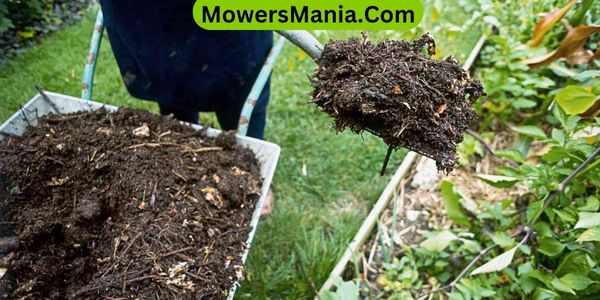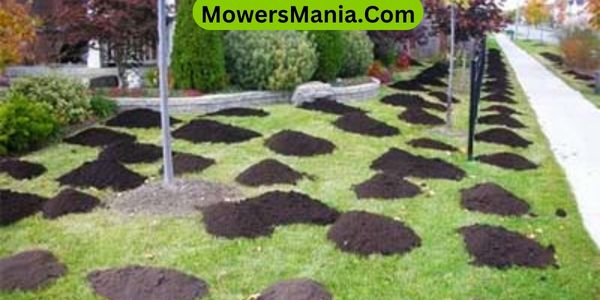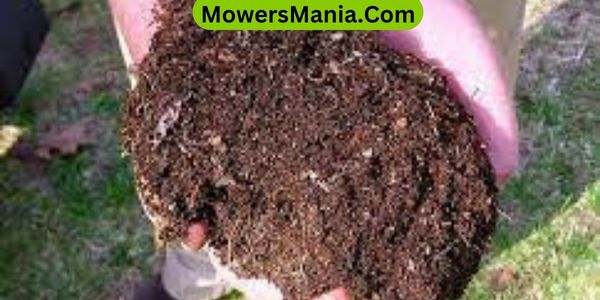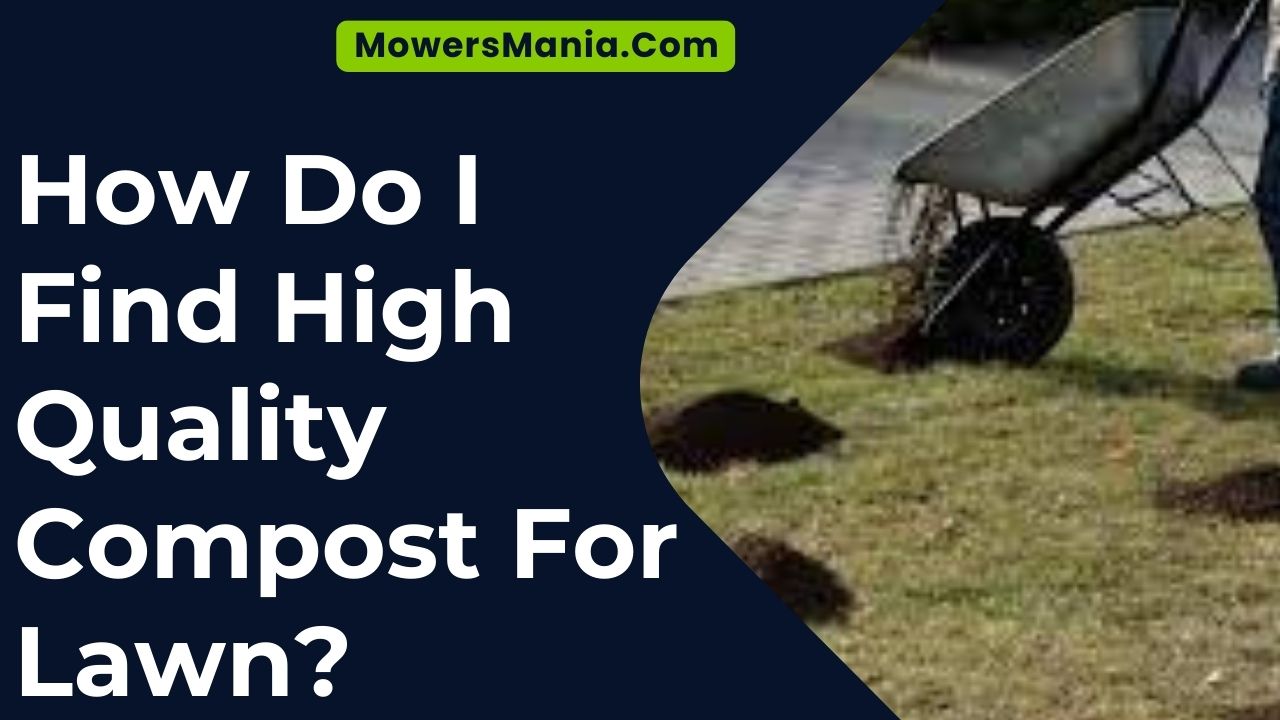Looking for high-quality compost for your lawn? You’re in the right place.
In this article, we’ll explore the key factors in finding top-notch compost to nourish your lawn. From understanding compost quality standards to identifying nutrient-rich varieties, we’ve got you covered.

Get ready to elevate your lawn care game with the best compost available.
Understanding Compost Quality Standards
To understand compost quality standards, you need to compare the composition and nutrient levels of different compost products available for your lawn.
The composition of compost can vary widely depending on the materials used to make it. For example, some compost may be primarily made from yard waste, while others may include a mix of food scraps, manure, and other organic matter.
It’s important to consider what your lawn specifically needs in terms of nutrients and pH balance, as different composts will offer different levels of nitrogen, phosphorus, potassium, and other essential elements. By comparing these factors, you can determine which compost will best meet the needs of your lawn.
In addition to the composition and nutrient levels, it’s also crucial to consider the maturity of the compost. Mature compost is more stable and will release nutrients slowly over time, providing long-term benefits to your lawn.
On the other hand, immature compost may contain phytotoxins that can harm your plants. Therefore, understanding the quality standards for compost involves not only comparing nutrient levels but also considering the maturity of the compost to ensure it will support the health and growth of your lawn.
Identifying Nutrient-Rich Compost Varieties
Look for compost varieties with high nutrient levels to ensure your lawn receives the necessary elements for healthy growth.
Nutrient-rich compost is essential for promoting lush, green lawns. When identifying nutrient-rich compost, consider varieties that contain high levels of essential elements such as nitrogen, phosphorus, and potassium.
Nitrogen supports vibrant green color and leaf growth, phosphorus aids in root development and flower/fruit production, while potassium contributes to overall plant health and disease resistance.
One way to identify nutrient-rich compost is to look for products that have been certified by reputable organizations. These certifications ensure that the compost has undergone rigorous testing to verify its nutrient content.
Additionally, you can check the compost’s ingredients to see if it contains organic materials such as manure, food scraps, and yard waste, which are sources of valuable nutrients.
Furthermore, consider seeking compost that has undergone proper decomposition to ensure that the nutrients are readily available to your lawn.
Compost that has aged adequately tends to have a well-balanced nutrient profile, making it an excellent choice for promoting healthy lawn growth.
Evaluating Organic and Synthetic Compost Options

When evaluating organic and synthetic compost options, you should carefully consider the frequency with which you plan to apply the compost to your lawn. This will help you determine which type of compost will best suit your needs.
Here are some key factors to consider when evaluating organic and synthetic compost options:
- Nutrient Content: Assess the nutrient content of the compost to ensure it meets the specific needs of your lawn.
- Soil Health: Consider how the compost will affect the overall health and structure of your soil.
- Environmental Impact: Evaluate the environmental impact of both organic and synthetic compost options, including factors such as resource usage and potential harm to beneficial organisms.
- Cost and Availability: Compare the cost and availability of organic and synthetic compost options in your area.
- Long-Term Effects: Consider the long-term effects of using organic or synthetic compost on the health and sustainability of your lawn.
Assessing Compost Texture and Moisture Content
Assess the compost’s texture and moisture content to ensure it meets your lawn’s specific needs. When it comes to texture, you want compost that’s crumbly and loose, which indicates good aeration and drainage.
Avoid compost that’s too clumpy or compacted, as it may impede root growth and water penetration. Additionally, the compost should have a pleasant earthy smell, indicating that it has undergone proper decomposition.
In terms of moisture content, the ideal compost should feel damp, like a wrung-out sponge. It shouldn’t be overly wet or dry.
Excessively wet compost may indicate poor drainage and anaerobic conditions, while overly dry compost may lack the necessary microbial activity.
To test the moisture level, grab a handful of compost and squeeze it. It should hold together without releasing excess water when you open your hand.
Researching Local Suppliers and Reviews

To identify high-quality compost for your lawn, begin by researching local suppliers and reading reviews from other customers. This will help you gather valuable insights and make an informed decision.
Here’s how you can effectively research local suppliers and reviews:
- Online Platforms: Utilize websites like Yelp, Google Reviews, or local community forums to find compost suppliers in your area and read about other customers’ experiences.
- Ask for Recommendations: Seek recommendations from friends, family, or neighbors who’ve used compost for their lawns. Personal referrals can provide trustworthy insights.
- Visit Local Garden Centers: Explore nearby garden centers or nurseries to inquire about reputable compost suppliers. They often have valuable knowledge about local options.
- Check Social Media Groups: Join gardening or lawn care groups on social media platforms to ask for recommendations and insights from experienced individuals.
- Contact the Supplier Directly: Once you’ve narrowed down potential suppliers, reach out to them directly to inquire about their products, process, and any customer testimonials they can provide.
Frequently Asked Questions [FAQs]
Can Compost Be Used on All Types of Lawns, Including Those With Specific Grass Varieties or Soil Types?
Yes, compost can be used on all types of lawns, including those with specific grass varieties or soil types. It enriches the soil, improves water retention, and provides essential nutrients for healthy lawn growth.
How Can I Ensure That the Compost I Purchase Is Free From Harmful Chemicals or Contaminants?
To ensure the compost you buy is free from harmful chemicals or contaminants, look for products labeled as organic or certified by reputable organizations. Check for any third-party testing or certifications to guarantee the quality.
Are There Any Potential Drawbacks or Risks Associated With Using Compost on a Lawn?
When using compost on your lawn, potential drawbacks or risks include the presence of weed seeds, pathogens, or imbalanced nutrient levels. It’s important to source high quality compost from reputable suppliers to minimize these risks.
What Are Some Alternative Uses for High Quality Compost Aside From Lawn Maintenance?
Aside from lawn maintenance, you can use high quality compost for enriching garden soil, creating potting mixes, and top dressing flower beds. It also makes a great addition to vegetable gardens and can be used for mulching.
Are There Any Specific Regulations or Guidelines for Using Compost on Residential or Commercial Lawns in My Area?
Before using compost on your lawn, check local regulations and guidelines for residential or commercial properties. This ensures you comply with any rules regarding compost usage in your area and helps maintain a healthy lawn.
Conclusion
So there you have it, finding high quality compost for your lawn is all about understanding the standards, identifying nutrient-rich varieties, evaluating organic and synthetic options, assessing texture and moisture content, and researching local suppliers and reviews.
By following these steps, you can ensure that your lawn gets the best possible compost for healthy and thriving growth.
Happy gardening!



